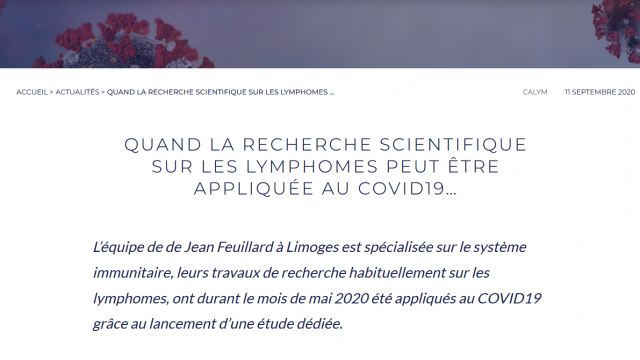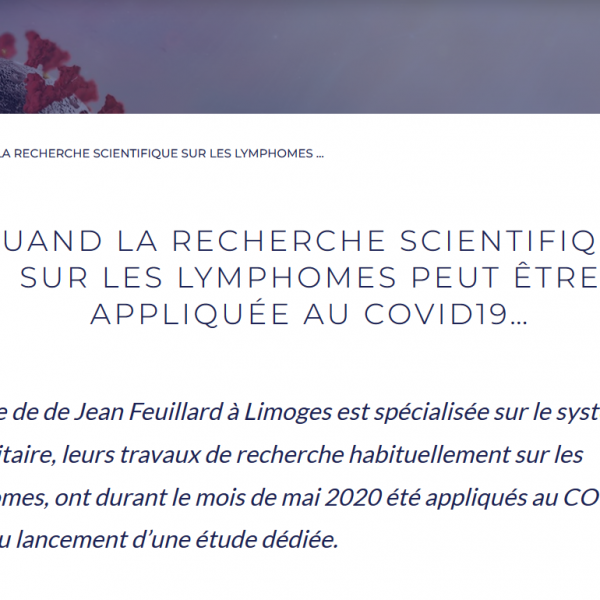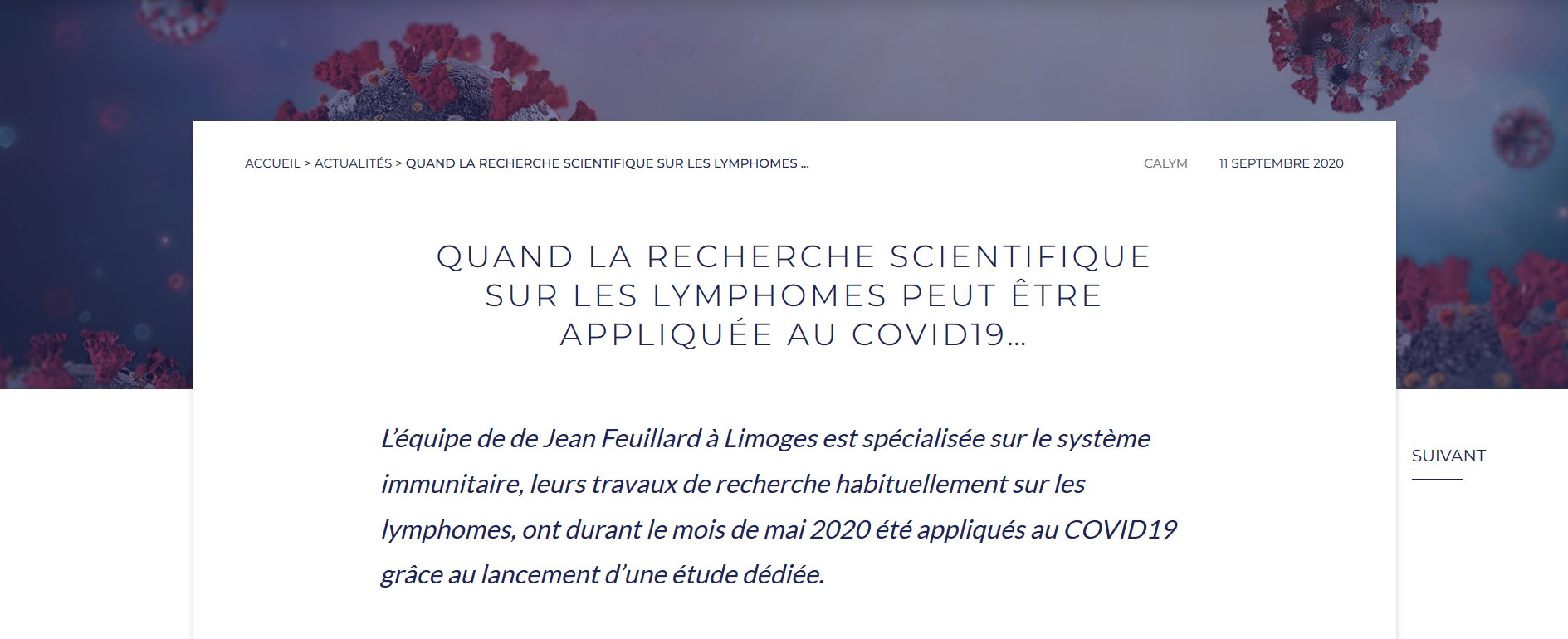
When scientific research on lymphomas can be applied to COVID19…
The team of Prof. Jean Feuillard in Limoges specializes in the study of the molecular mechanisms of lymphomagenesis. The research work during the month of May 2020 was applied to COVID19 thanks to the launch of a dedicated study.
The ecosystem Experts Recherche Lymphome (LYSA, LYSARC, CALYM) interviewed Professor Jean Feuillard and Robin Jeannet to enlighten us on the reasons and modalities for setting up such a study.
Extract:
– How did the scientific research carried out within CALYM and on lymphomas allow you more generally to launch this study on COVID19?
With the development of immunotherapy in the treatment of many cancers, we have recently focused our research on the host-lymphoma relationship and tried to characterize the different populations of the immune system that could be involved in the development of the latter. We have also been working for many years with the intensive care unit of the Limoges University Hospital, with which we are trying to characterize the hematological upheavals occurring during sepsis.
With the pandemic, the pooling of our skills seemed obvious to us. We present here the first study with a follow-up over time of these blood leukocyte subtypes and the related functional changes. For this work, CIC INSERM 1435 and team 2 of UMR CNRS 7276 / INSERM 1262 have joined forces to study in great detail the effects of the SARS-Cov-2 virus on the immune system of patients in respiratory distress admitted to intensive care, with logistical support from the intensive care unit and the hematology and bacteriology-virology and hygiene laboratories of the Limoges University Hospital for the inclusion and monitoring of patients, flow cytometry and viral loads.
Find the interview with Prof. Jean Feuillard and Robin Jeannet collected by the Lymphoma Research Experts ecosystem (LYSA, LYSARC, CALYM): https://experts-recherche-lymphome.org/actualites/quand-la-recherche-scientifique-sur-les-lymphomes-peut-etre-appliquee-au-covid19/


